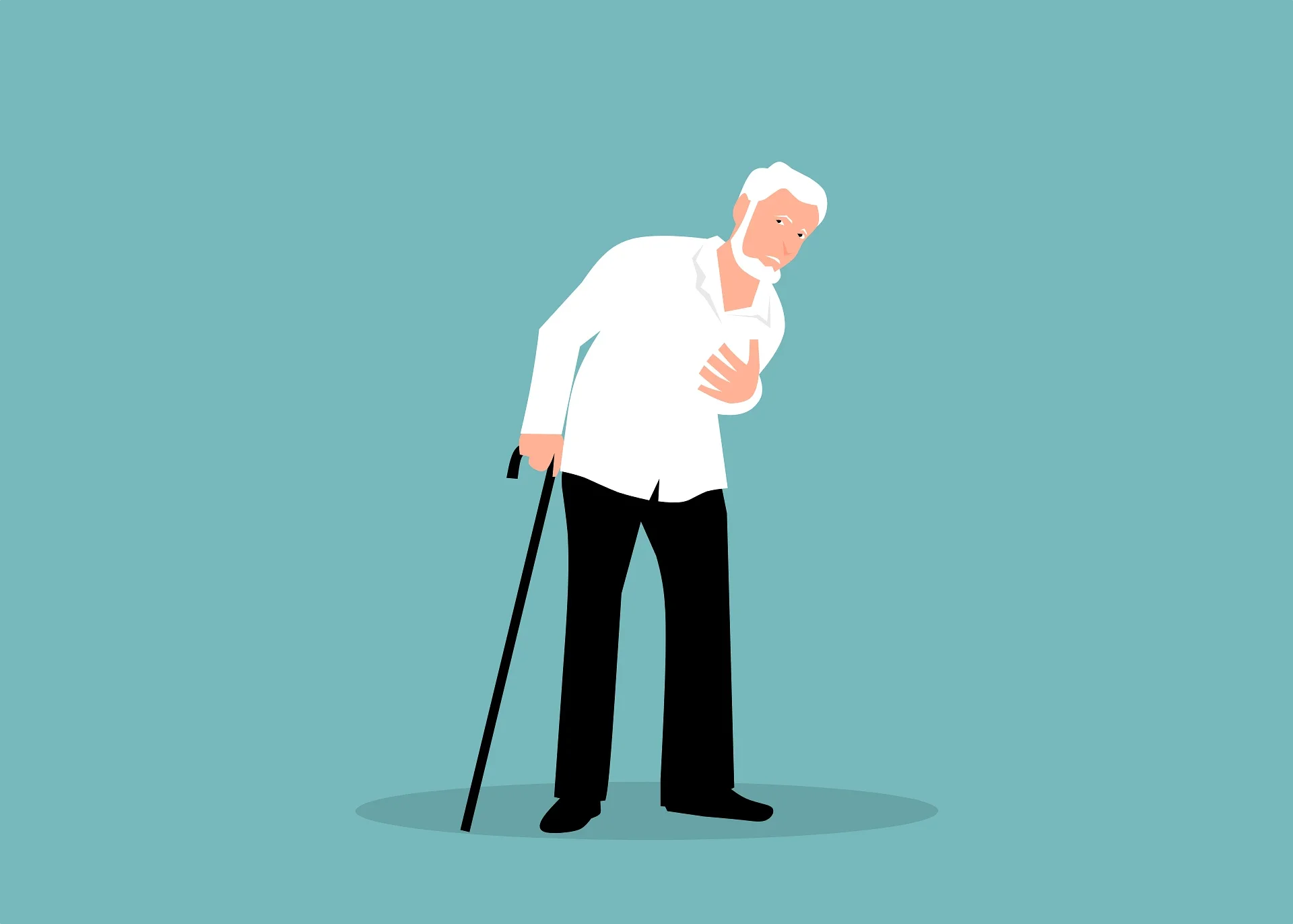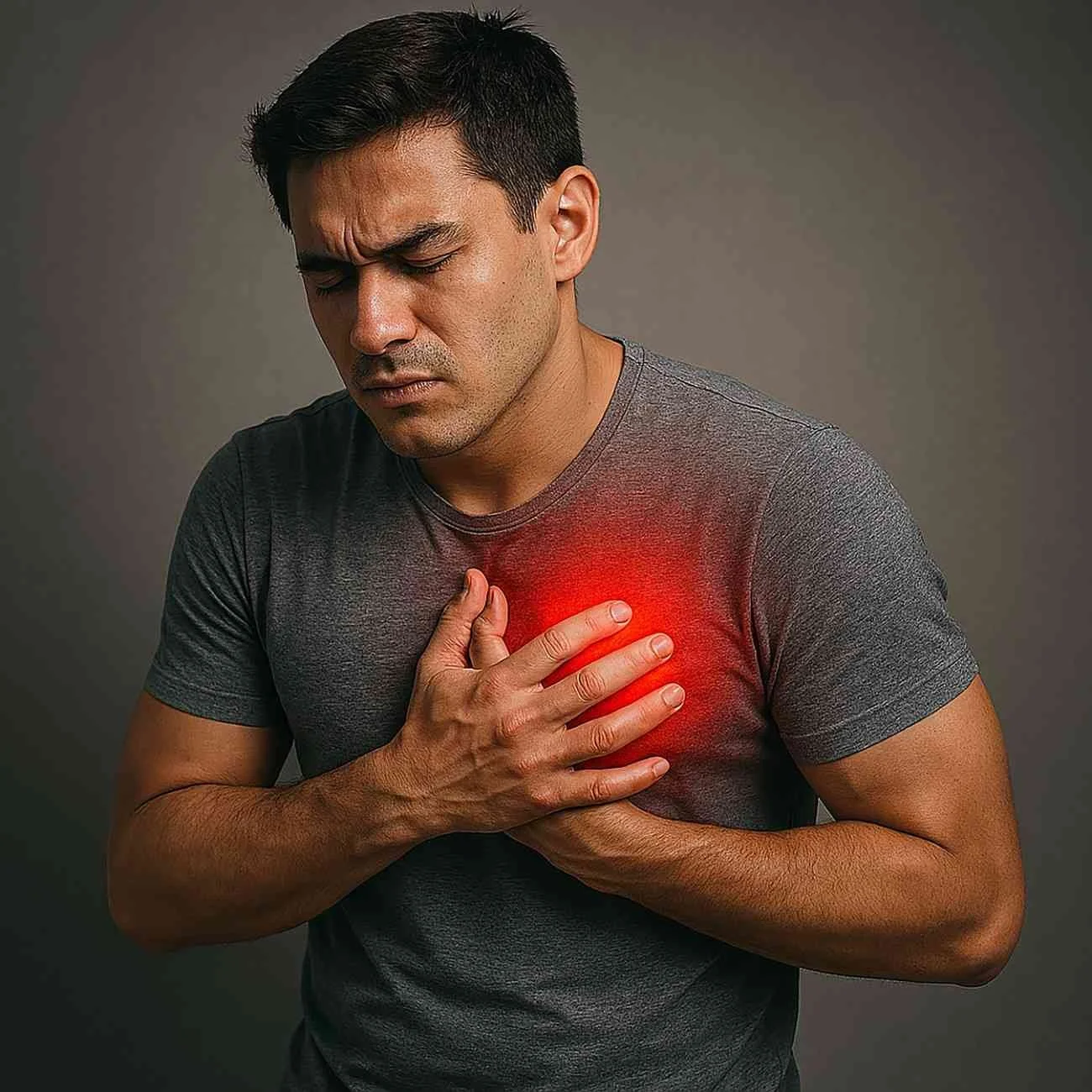Women's Heart Disease: Unique Signs, Risk Factors, and Prevention Strategies
Because it supplies all of the body's cells with blood, oxygen, and energy, the heart is one of the most vital organs. However, many women ignore the early warning signals of heart disease because they believe the symptoms are due to hormone fluctuations, stress, or fatigue. Serious issues like heart attacks and chronic heart difficulties can be avoided by identifying and treating heart problems early. The doctor discusses heart symptoms in women, emphasizing shortness of breath, chest pain, and unusual fatigue.
A woman holding her chest with concern, showing early signs of possible heart discomfort—highlighting the importance of recognizing unique heart disease symptoms in women
Typical Heart Disease Symptoms in Women
Recognizing the early warning signs is the first step towards preventing something. Unlike males, women frequently exhibit mild or atypical symptoms that could be confused with common health issues. Among the most typical indicators are:
Chest discomfort or little pressure
Breathing difficulties when sleeping or performing easy tasks, feeling exhausted even after accomplishing very little
Neck, jaw, shoulder, or upper back pain
Experiencing nausea, vomiting, or gastrointestinal distress
Fainting or feeling lightheaded
Suddenly feeling weak or sweating cold
You should immediately schedule a complete cardiac examination with a cardiologist if you experience any of these symptoms.
What Makes Women More At Risk for Heart Disease and What Causes It?
Heart disease can be caused by a variety of factors. Some are related to lifestyle, while others are exclusive to women or are brought on by hormonal changes and ageing. Among the most prevalent risk factors and causes are:
High blood pressure damages arteries over time.
Plaque accumulation in blood arteries is caused by high cholesterol.
Diabetes: Heart disease is more common in women than in men.
Smoking is one of the easiest ways to break your heart.
Sedentary lifestyle: Heart health is negatively impacted by insufficient activity.
The heart is under extra stress when obese.
Risk Factors Exclusive to Women
Pregnancy-related issues include preeclampsia or gestational diabetes.
Polycystic Ovary Syndrome, or PCOS, has an impact on hormones and the body's energy utilisation.
Early menopause: Heart disease risk increases with lower oestrogen levels.
Autoimmune diseases: Associated with inflammation, more prevalent in women.
Women should have regular checkups because of these factors, particularly after the age of 35.
How Women Can Prevent Heart Disease Naturally
While many cardiac risks can be reduced by adopting healthy lifestyle choices, some require medical intervention. You may strengthen your heart naturally by doing the following easy steps:
Consume fruits, vegetables, whole grains, nuts, seeds, and lean proteins as part of a heart-healthy diet.
Spend at least half an hour each day exercising or going for a stroll to stay active.
Engage in deep breathing, yoga, meditation, or any other calming exercise to relieve tension.
Give up smoking: Women who smoke, even lightly, are far more likely to suffer a heart attack.
Pay attention to your health metrics: Monitor your blood pressure, sugar, and cholesterol levels.
Maintaining a healthy weight improves blood flow and heart health.
These simple actions can significantly reduce your risk and maintain heart health.
How to Handle Women's Heart Conditions
When lifestyle improvements are insufficient, medical care becomes necessary. The cause and severity of the ailment determine the course of treatment. Typical therapies include:
Drugs: To regulate cardiac rhythm, blood thinners, cholesterol, or blood pressure.
Angioplasty: Blocked arteries are opened with a catheter.
Placing a stent keeps arteries open, facilitating easier blood flow.
Through bypass surgery, blood can reach the heart through a different route.
Organised programs to improve heart health are known as cardiac rehabilitation.
Seeing a cardiologist on a regular basis ensures that issues are identified and addressed promptly.
When a Cardiologist Should Be Seen
You should get medical help right away if you suffer from:
Abrupt pressure or discomfort in the chest
Lack of breath
Sweating or experiencing sudden lightheadedness
Pain radiating to the jaw, back, or arms
Suddenly feeling faint or weak
If you ignore these warning indicators, you may have life-threatening issues. The greatest method to protect your heart is to get diagnosed early.
Your Partner in Women's Heart Health: JIET Hospital Jodhpur
See the skilled cardiologists at JIET Hospital, Jodhpur one of the best hospital in india , if you or a loved one is exhibiting signs of heart disease. For women of all ages, the hospital's modern cardiology department provides comprehensive cardiac examinations, diagnostic procedures, and customised treatment regimens. In Jodhpur, JIET Hospital is regarded as one of the top medical facilities. known as one of the best multispecialty hospitals in india based in Jodhpur is JIET Hospital It offers top-notch care using a combination of technology, expertise, and empathy to support women in leading stronger, healthier lives.




